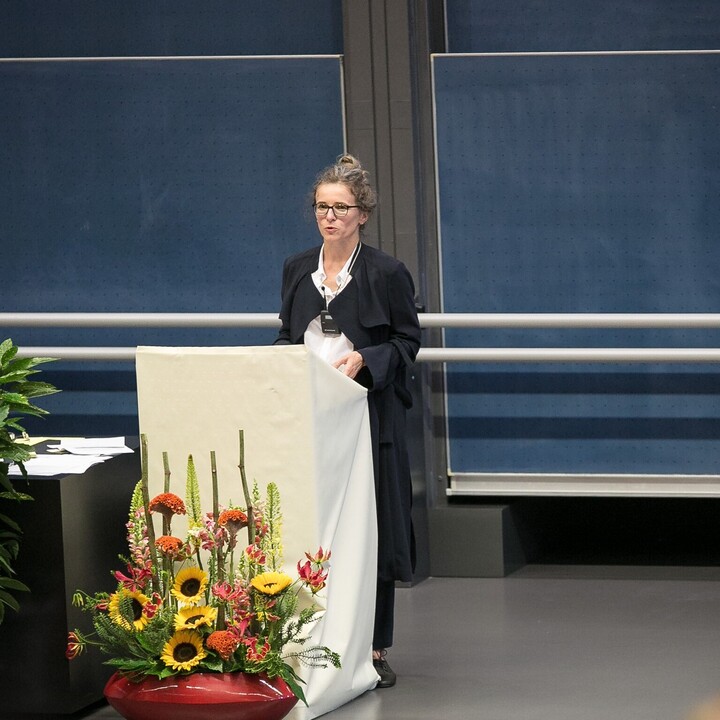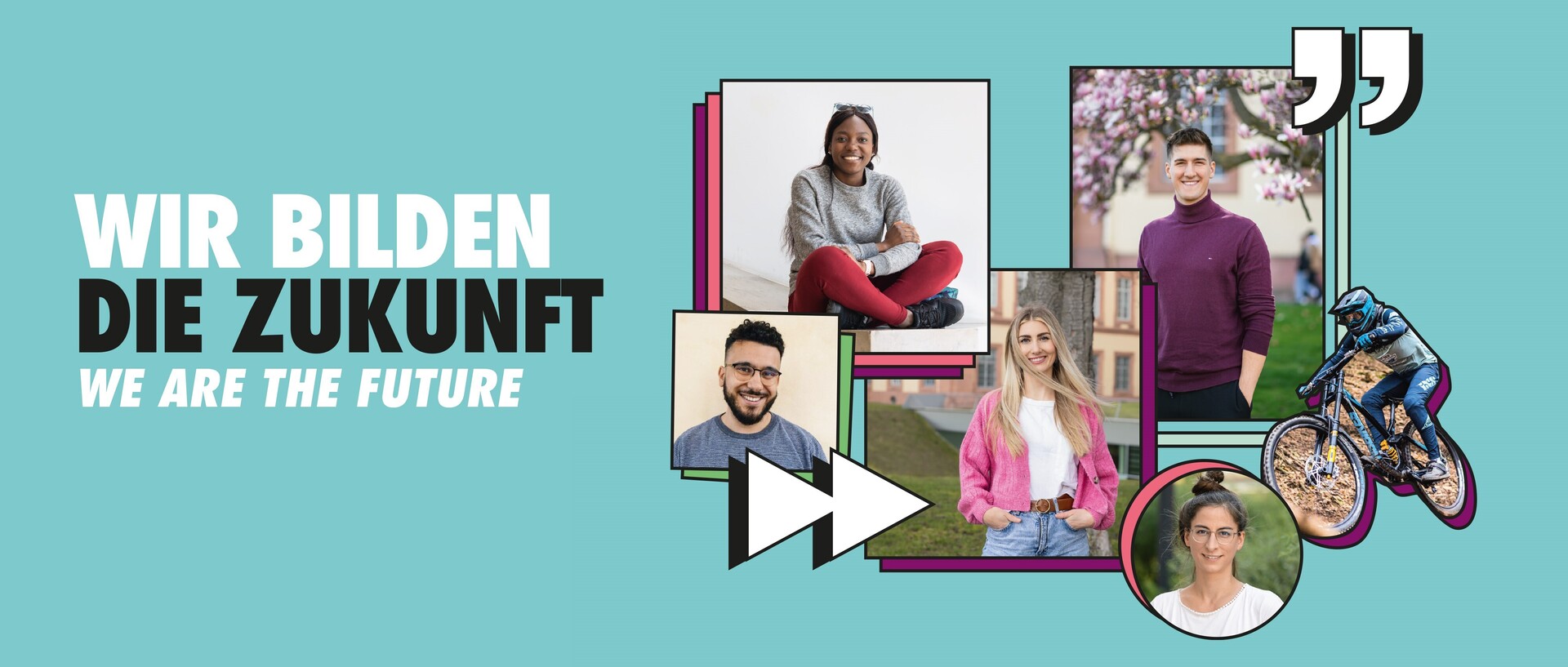Letting Down an Anchor
Alumna Melanie Meder did not have any specific plan for what she would do after graduation. She decided to go into the field of communication toward the end of her program. Today, more than 20 years later, she feels that she made the right choice. Despite that, when she last changed employers, more than just the career field was important.

On a Tuesday evening in March, FORUM interview on Teams: The camera was on, the volume was adjusted, there were a few rustling noises, everyone sat up straight, and then Melanie Meder appeared on the screen. She asked the now familiar question: “Can you see me?” and leaned her cell phone against the wall so everyone could confirm that they could see her. “I can’t wait to hear what you want to ask me!” she said and began to talk about how she started her program.
Meder, who is now 52 years old, grew up in the small town of Haßloch in the Palatinate region. When deciding what to study in the early 1990s, she focused on what interested her at the time: “The Berlin Wall had just come down, and glasnost and perestroika were buzz words. That was something that interested me and everyone else my age. The political discussions encouraged me to use my time studying to find out how I could explain these changes. I didn’t have any grand plan. Today some students are probably already thinking about their career prospects when they enroll,” she said when reflecting on how she chose her program. She decided to enroll at the University of Mannheim with a major in political science and minors in public law and general linguistics. Why Mannheim? “Not many people in my family had gone to university. At the beginning, I could commute to Mannheim in case things didn’t work out with my studies. But they did work out, and I became what you would probably now call a ‘long-term student,’” Meder stated.
During her studies, Meder worked as a student assistant at the chair of Peter Graf von Kielmannsegg, a renowned German political scientist. “I enjoyed that, but I didn’t see myself pursuing a career in research,” she said. Soon after starting her program, she changed her minor and took Russian. “I couldn’t speak any Russian, but I thought the language sounded so melodic and dramatic.” To learn the language and pass the exam, she attended the Crimea Federal University in Simferopol for nearly a year and lived with a host family. Following that, she moved to Kyiv for several weeks to complete an internship with Greenpeace. “I had already volunteered with Greenpeace when I was in Mannheim. In the 1990s they were doing a lot, for example the Shell boycott, because the company wanted to sink a floating oil rig in the ocean. I then wrote my Magister thesis on democratization processes in organizations like Greenpeace,” Meder said.
When asked how she went from democratization processes to communication, the alumna stated: “I always found it interesting to convey interests and positions. When I did an internship in the political communication unit with BASF, I realized that this might be the right career field for me.” Once she completed her degree, she looked for a job and was offered a position with BASF. “It was a pure coincidence that a temporary employment agency helped me find a job there in marketing, which is similar to communication. But luck also plays a role in career paths,” Meder said. After working for the chemical company, she moved to a communications agency. However, there she missed working for a company: “I missed knowing how everything worked in the company, feeling like I belonged, and a corporate culture.” In the following years, Meder switched between companies and agencies. These were rewarding experiences for her, as she was able to get to know both sides of communication work.
At the beginning of the year, Meder moved near Basel, Switzerland, and since then has been working as head of communications with the company Knauf. This time, she put a lot of thought into selecting the new position: “I wanted to go back to a company, be a little farther away, and go to an area where I like to spend my free time. I immediately felt a connection with Knauf,” she said. Since then, she has been in charge of communications about systems for drywall construction and many other products for new construction or renovations. “Our target groups include architects, distributors, and people who use our systems. I think the work is very interesting, diverse, and tangible,” Meder stated.
Meder could also see herself founding an ABSOLVENTUM regional group around Basel. “Our first meeting could be a hike. Or a tour through the museums in Basel,” she said. For her, the network has always provided a connection to her alma mater, and the farther away one goes, the more important that connection is. Meder described it poetically: “It is like having an anchor let down in the place I call home.”
Text: Luisa Gebhardt/
